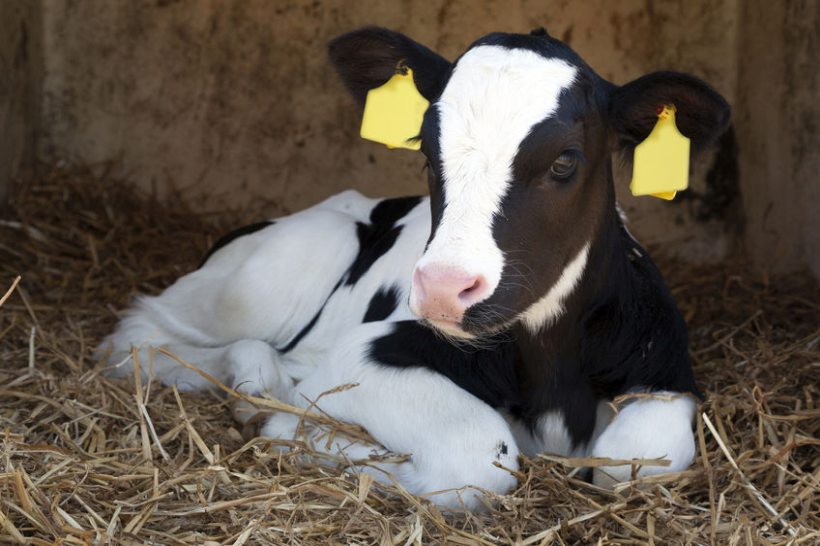
Making changes to how feeding equipment is cleaned could improve the health of calves on British dairy farms, according to a new study.
The research looked at colostrum hygiene, concluding that by making changes to cleaning protocols, farmers could minimise the risk of disease in calves.
The University of Nottingham study, published in Frontiers in Veterinary Medicine, is one of the first to look at colostrum hygiene in Britain.
Several studies have provided estimates of colostrum hygiene at a national level, although to date this has not been conducted in Britain.
In this new study, experts analysed data from 328 colostrum samples from 56 British dairy farms.
Samples collected from collection and feeding equipment had higher levels of bacteria than those collected directly from the cows’ teat.
This suggested that whilst colostrum from the cow is relatively low in bacterial levels, improperly cleaned equipment can be a major source of bacterial contamination.
Over one third of samples collected from collection or feeding equipment were over the threshold for high bacterial levels and represent a significant risk to the health of calves.
Dr Robert Hyde, one of the researchers on the study said: “By analysing colostrum collection protocols on the farms, we were able to identify a small number of management practices likely to have a substantial impact on colostrum hygiene for the majority of farms.
"For example, the use of scalding hot water to clean collection and feeding equipment could reduce bacteria levels by over 90% compared with using cold water only."
Key recommendations include the cleaning of colostrum collection and feeding equipment after every use with hot water as opposed to cold water, and hypochlorite or peracetic acid as opposed to water or parlour wash.
Cows' teats should be prepared with a pre-milking teat disinfectant and wiped with a clean, dry paper towel prior to colostrum collection, and colostrum should be pasteurized where possible.
Dr Hyde added: "Less than half of farms used scalding hot water to clean colostrum collection and feeding equipment, suggesting there are a large number of farms that could make this simple change.”
